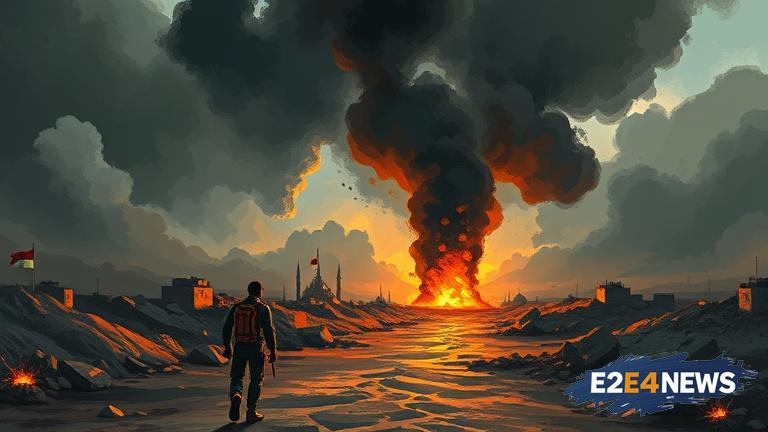The war in Gaza has been a longstanding and complex issue, with both Israelis and Palestinians suffering greatly. The conflict has resulted in the loss of countless lives, displacement of people, and destruction of infrastructure. Despite numerous attempts at a ceasefire, the violence continues to escalate, with no end in sight. It’s time to acknowledge that the current approach is not working and that a new strategy is needed. Ending the war in Gaza would require a concerted effort from all parties involved, including the Israeli government, Palestinian leaders, and the international community. This would involve a commitment to diplomacy and a willingness to compromise on key issues, such as borders, settlements, and security. The benefits of ending the war would be numerous, including a significant reduction in violence, improved living conditions for civilians, and increased economic opportunities. Furthermore, it would allow for the rebuilding of infrastructure, the restoration of basic services, and the revival of community development projects. However, achieving peace will not be easy, and it will require addressing the underlying issues that have fueled the conflict for so long. This includes the Israeli-Palestinian conflict, the role of Hamas, and the impact of external factors, such as the involvement of other countries in the region. A comprehensive and inclusive peace process would need to be established, one that takes into account the needs and concerns of all parties involved. This could involve the creation of a new framework for negotiations, one that is based on mutual respect, trust, and a commitment to finding a lasting solution. The international community has a critical role to play in supporting this process, through the provision of diplomatic, economic, and humanitarian assistance. Additionally, civil society organizations, community groups, and individuals can also contribute to the peace-building efforts, by promoting dialogue, understanding, and reconciliation. It’s also important to recognize the importance of education and cultural exchange in promoting peace and understanding. By learning about each other’s histories, cultures, and perspectives, Israelis and Palestinians can begin to break down the barriers that have divided them for so long. Moreover, the media has a responsibility to report on the conflict in a fair and balanced manner, avoiding sensationalism and stereotypes that can fuel hatred and violence. Ultimately, ending the war in Gaza will require a fundamental shift in the way we think about the conflict and our approach to resolving it. It will require courage, creativity, and a commitment to finding a solution that works for everyone. The alternative is a continuation of the cycle of violence, which will only lead to more suffering, more bloodshed, and more despair. The people of Gaza deserve better, and it’s time for us to work towards a brighter future, one that is built on peace, justice, and human dignity. The consequences of not ending the war would be catastrophic, with the potential for even more devastating consequences, including the loss of entire communities, the destruction of cultural heritage, and the perpetuation of a cycle of violence that could last for generations. On the other hand, the benefits of ending the war would be immeasurable, with the potential for a new era of peace, prosperity, and cooperation in the region. It’s time for us to choose a different path, one that is guided by a commitment to human rights, international law, and the principles of justice and equality. By working together, we can create a better future for all, one that is built on the values of compassion, empathy, and respect for human life.
